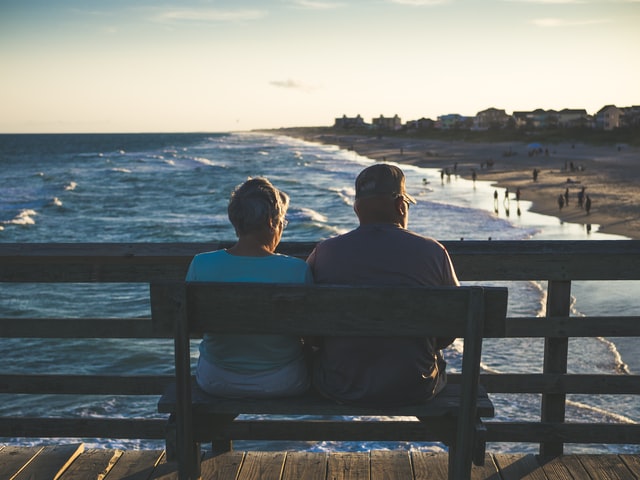
When life’s circumstances require a dear family member to move into a nursing home, they should be treated as if they’re living in their own homes. After all, the nursing home is now your loved one’s home. Yet an estimated 5 million elders experience nursing home abuse every year.
With more than 20 years of courtroom experience, I’ve seen firsthand the physical, emotional and psychological damage of elderly abuse. If you believe nursing home abuse has caused severe injuries to or a loved one, please don’t hesitate to contact us via phone at 864-235-4999 by tapping the button below or by filling out our request form for a free consultation.
Nursing home abuse is preventable. Our seniors, elderly parents and grandparents deserve the finest of care. Unfortunately, huge conglomerates who own private nursing homes deny the quality of care. These homes promise families the world but fail to live up to that promise. Whether it’s the number of staff available to provide proper care or improperly trained staff, nursing home facilities often fail to protect their residents.
Here’s an overview of some of the most common nursing home injuries.
Nursing Home Abuse due to Assault
It’s called a nursing home because it’s your elderly loved one’s home. This community should be a place for your loved one to feel safe, cared for, and relaxed. Unfortunately, physical and psychological assaults perpetrated by staff do occur.
Around 24 percent of nursing home residents experience at least one instance of physical abuse in nursing homes. According to a WHO study, “nearly one out of 3 nursing home staff members admitted to emotionally abusing residents.”
Spotting the signs of assault is difficult. There are some common signs of physical or emotional assault:
- Unexplained bruising, cuts, welts or other injuries
- Unexplained soft tissue injuries
- Broken glasses, hearing aids, and other devices
- Marks on wrists from restraints
- A resident who fears a particular caregiver
- A caregiver who refuses to give you access to your family member without their presence
If you suspect physical or emotional abuse has occurred, please call 911. After contacting the police, please don’t hesitate to contact me. I will be by your side, as well as your loved one, throughout your case and after to ensure your case receives the focus you deserve.
Patient Elopement
Patients suffering from dementia or other types of cognitive issues can result in a resident wandering or leaving the nursing home without permission. The lack of adequate supervision is the only reason an elopement can occur.
Nursing home staff must receive proper training to prevent residents from wandering. Like fall injury prevention protocols, there should be procedures that all nursing home staff must follow to prevent a resident from leaving the facility without knowledge.
When your loved one chooses to reside in a nursing home, you expect the staff to protect them. Rightfully so. Monitoring an elderly individual’s whereabouts is the bare minimum. Yet, 10 percent of all nursing home abuse lawsuits revolve around a resident wandering away from the facility. If the facility fails in that capacity, what other responsibilities are they struggling to uphold?
Bed Sores
According to the CDC, one out of 10 nursing home residents currently suffers from bedsores. Also known as pressure sores, bedsores are caused by unrelieved pressure on the skin.
Bedsores can cause serious health problems like infections and other life-threatening injuries. Negligence and improper medical care are the common circumstances that lead to bedsores.
Daily exercise, frequent skin inspections, and changing seating positions can help prevent pressure sores. When bedsores occur, the hospital uses a four-stage scale to determine their severity. You can learn more about the scale by clicking the button below.
When bedsores happen, an early diagnosis is imperative. Failing to uncover this painful ailment can lead to serious consequences, such as:
- Cancer
- Joint or bone infections
- Sepsis
- Cellulitis
Fall Injuries
Nursing home residents require adequate supervision to check dangerous conditions that can lead to falls. Every nursing home should have protocols in place to prevent falls, and failing to follow those protocols can lead to serious injuries.
Fractures, broken bones, head trauma, hip fractures, and other serious injuries can occur due to a fall. Visit our slip and fall page to learn more about dangerous situations that can result in a serious fall injury.
Dehydration and Malnutrition Leads to Nursing Home Abuse
Dehydration is another sign of nursing home abuse or neglect. Dry mouth, papery skin, and decreased urine output are some of the early symptoms of dehydration. Nursing home staff are responsible for ensuring that all of their residents receive proper fluids. When they fail, they must be held accountable for their neglectful actions.
Failure to provide proper nutrition is another neglect that is far too common. Nursing home residents require daily vitamins and a proper diet, and when staff members fail to provide proper nutrition, physical and mental deterioration can result.
We investigate cases involving all types of long-term or short-term care facilities such as long-term care facilities, skilled nursing facilities, rehabilitation hospitals, Alzheimer’s or memory care facilities, and traditional nursing home facilities.
After Suspected Nursing Home Abuse Occurs
Inadequate supervision is the most common cause of nursing home abuse. When these for-profit nursing homes fail to live up to their promise, their residents suffer as a result.
If you or a loved one has suffered serious injuries in a nursing home, the trauma can be devastating. Thomas Creech has the experience of guiding clients through the peaks and valleys that a nursing home abuse case represents.
Call us today at 864-235-4999 or fill out the form below to request your free consultation.
[contact-form-7 id=”3838″ title=”Contact Us”]

